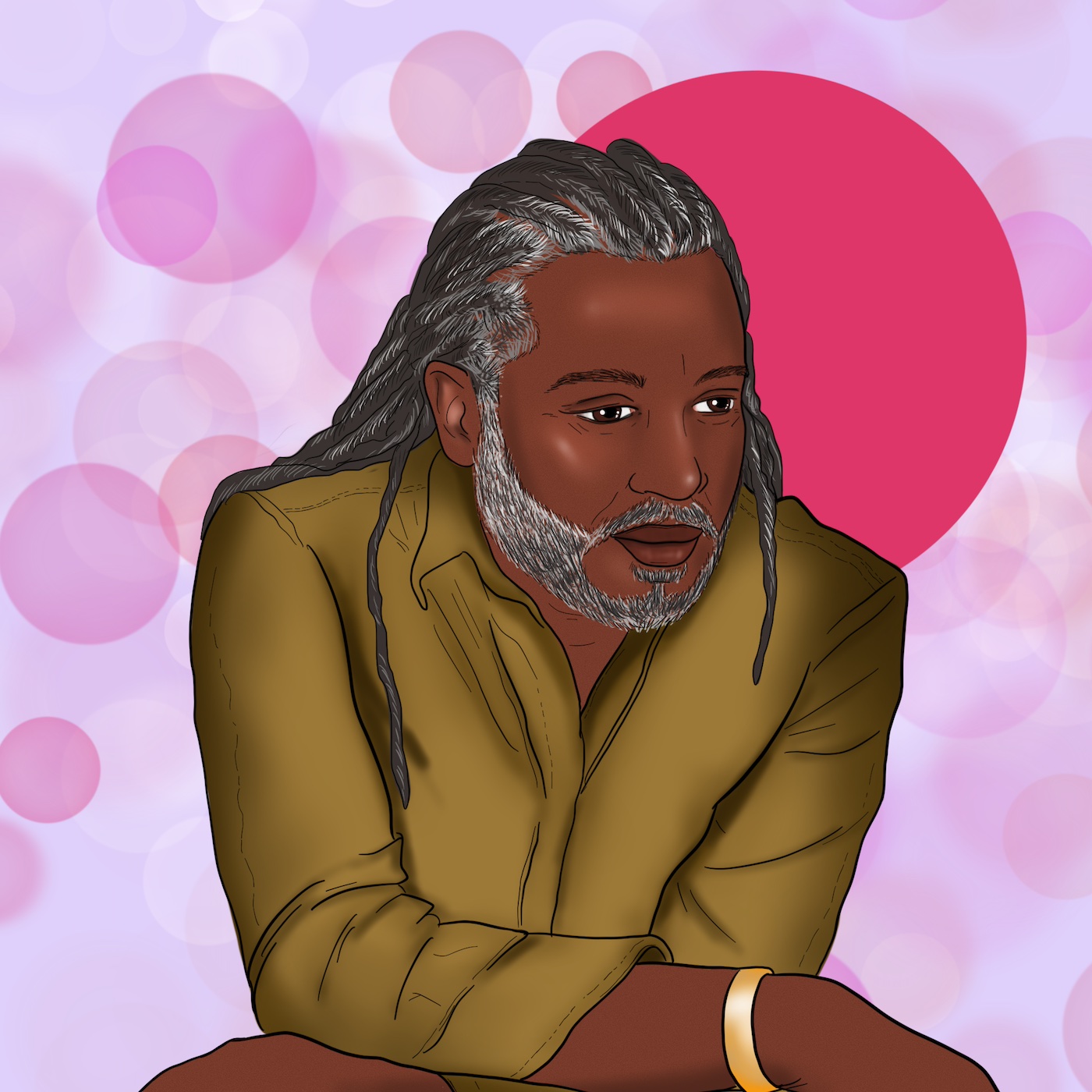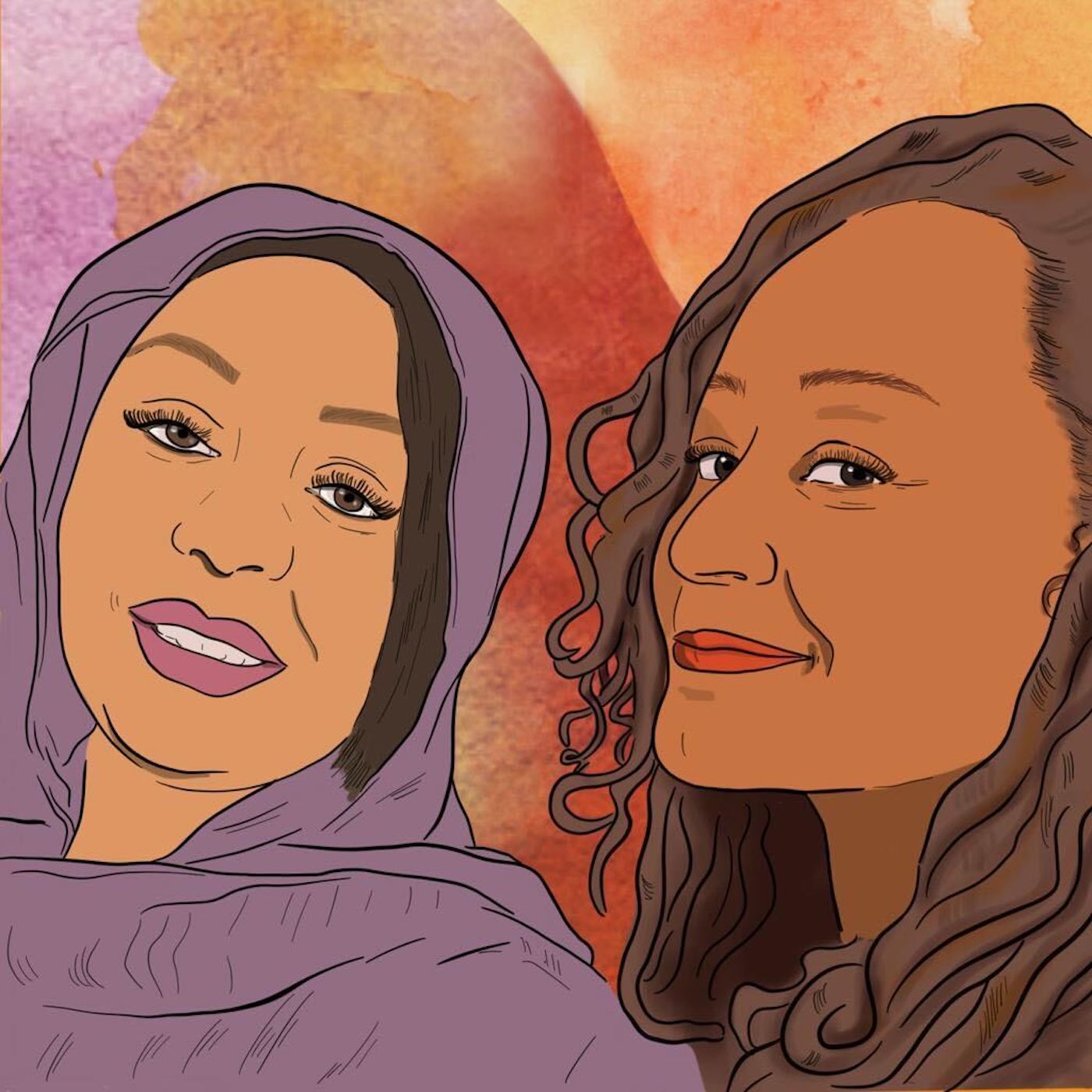Discover The Stoop
The Stoop

The Stoop
Author: Hana Baba and Leila Day
Subscribed: 19,920Played: 111,960Subscribe
Share
© 2017
Description
The Stoop podcast digs into stories that are not always shared out in the open. Hosts Leila Day and Hana Baba start conversations and provide professionally-reported stories about what it means to be black and how we talk about blackness. Come hang out on The Stoop as we dialog about the diaspora.
103 Episodes
Reverse
This is an ode to Black men's voices. Celebrating some of the voices that soothe, excite, or give us a sense of feeling grounded. Over the years, Black men’s voices have symbolized comfort, affection, and authority in pop culture. From the baritone of Barry White to the reliable tone of James Earl Jones, we're celebrating voice. We also meet voice actor and writer Kingsley Okafor of the group that became a viral sensation: Bearded Black Men Reading. Kingsley Okafor: @rukuslive
“When can we allow somebody to cry and be transparent?” WNBA player Chamique Holdsclaw asked at the height of her career as a pro basketball player. Chamique's willingness to address her mental health changed her life. In this episode, Chamique talks about the Black pride that can get in the way of healing, what she’d like for people to consider when they have loved ones struggling, and she shares her story of survival and choosing to love herself.
Hana is trying to enjoy the Sudanese music she loves, but something isn’t feeling right. The war in Sudan continues, and has destroyed with it a lot of the country’s cultural landscape, including places where the country’s music once lived. She’s wondering - what will happen to Sudan’s musical heritage? She talks it out with Leila and with Haneen Sidahmed - someone who is preserving music on her site Sudan Tapes Archive, plus she visits a Sudanese choir that’s singing the classics in California.
Many children dream of being wildlife experts after watching hours of nature shows, but as grown-ups, it’s rare to meet a Black nature ecologist. Today we hear some unbelievable nature stories with carnivore expert Dr. Rae Wynn-Grant. She shares the most fascinating challenges in her career from facing the racialized history of conservation work to the time she had to solve the mysterious death of a Black bear.
Get your popcorn! It’s movie night on The Stoop. Whether during filmmaking booms or busts, Black entertainers and filmmakers found a way to show Black love on screen. We explore the history of love in Black movies with film scholar Dr. Artel Great. From the first Black kiss filmed in the 1800s, to the 90's romance renaissance and beyond, we go down Black film memory lane to dissect some iconic moments of Black love on the silver screen.
This season we're leaning into love in all its forms — starting with the city of love, Paris. Leila meets with Sutanya Dacres, an American in France, who transformed her life after heartbreak through the joy of cooking. She also lets us in on the secret ingredient that makes French life feel so romantic.
The Stoop is back with season 10! This season, Leila and Hana are exploring love in its many forms.
Sometimes it’s easier to hold back than be completely honest, especially when talking about some of the themes that are brought up on The Stoop. Today Hana and Leila share some moments that made them uncomfortable but also made them realize the importance of sharing the discomfort. As we approach our 100th episode, let’s be 100% real.
Hana spends a day in Nairobi with Kenyan Instagram comedian, Hope Hajir. Hope made it to the U.S. and was living her life when a tragic event gave her pause.
While many people who reach the U.S. find ways to stay, Hope decided to return to Nairobi and talks about the experience of not wanting to live the American Dream.
This summer, The Moth and The Stoop are getting cozy and sharing stories. Today, we invite special guest, Suzanne Rust, the host of The Moth storytelling series, to share a tale she loves. This story is by Ivan McClellan, a photographer who lives in Portland, Oregon. Ivan found something very unexpected in his hometown of Kansas City, Kansas when he learns about the black rodeo. In this double feature, we also stoop it out with Suzanne about The Stoop’s episode —episode 75 —“Black don’t crack?” and how we really feel about aging.
What’s it like when everyone at home speaks a language you don’t understand? That’s the story of Claudia, a Ghanaian American who grew up not speaking her home language —her ‘Mother Tongue’. But everybody else did, including her own siblings. The effects were real: disconnect, frustration, shame, and at some point a full on identity crisis. We also ask other people in the diaspora if they speak their home languages, and Hana contends with her own kids’ lack of fluency, and what it means.
Leila travels back to Cuba —and to her 20s —in this special episode about Havana, dance, hair, proud negras, and finding your voice. This story is told in collaboration with Meditative Story, hosted by Rohan Gunatillake.
It’s a term of endearment but not everybody wants to be your “Auntie.” Today, Leila and Hana unravel some of the emotions and stereotypes tied to being an “Auntie.” They did into the deeper connections to ageism, the evolving meaning of the term, and discuss the weight of “respectability handles” within Black culture.
Interest in psychedelics is ramping up. People are even claiming that psychedelics can help heal racial trauma. But should we believe the hype? Can psychedelics bring us pleasure and joy? Or is the new psychedelic gold rush perpetuating the same old harm? Producer Natalie, takes hosts, Leila and Hana, on a sonic trip to talk to a few new and seasoned psychonauts: Tonya Mosley, host of Truth Be Told and Fresh Air, decolonized psychedelic educator and practitioner, Buki Fadipe, and psychiatric nurse practitioner and organizer, Kwasi Adusei.
Today, The Stoop has a special episode. The war in Hana’s home country, Sudan, continues. Hana has been feeling the conflict here at home in the States. Today we pause and take a moment to reflect on the music that has been holding people together, and we highlight the voices of Sudanese Americans who are living through a reality that their homes may never be the same.
Many thanks to the kids of SANC School in California, musician Mazin Jamal and legendary songstress Salma Elassal for her songs of longing that carry us through these hard times.
Hana has a dilemma. As a diasporan, is she basically a diluted African? This question arises when Hana and Leila travel to conduct workshops at a conference in Kenya. Hana finds that she’s questioning her place —she’s African, but she’s a diaspora African —and she wonders how she’s seen, and what her role is, as someone who flies in from the West. In Nairobi, Hana gets some advice on diaspora privilege from Africa Podfest’s Melissa Mbugua, then in California she chats with fellow diasporans who are also asking, how should we conduct ourselves in Africa?
How do you talk about death without talking about death? Discussions about succession planning, and what the future looks like when your loved one is gone, are tough. Leila explores legacy through a conversation with her mom, Vicki, who is planning to have her work as a gallerist live on for the next 100 years. We also meet Lauren Rosa Miller, who tells her personal story about taking over her family business and explains why she’s teaching others to have hard conversations.
Whether it's the way we talk, the music we hear, or the clothes we wear- many Black people at some point were made to feel 'not Black enough’, including Leila and Hana.
In this special episode, Leila explores with broadcast journalist Joshua Johnson what it means to be told she ‘talks white’, Hana talks to a psychologist as she wonders if she has to like everything Black to avoid getting called out, and we go deep with comedian W. Kamau Bell who's felt awkward in Black circles and in front of Black audiences.
What does it mean to be ‘Black enough’?
Hana’s writing a book of Sudanese folktales that have been handed down through generations in her family, but some questions have been haunting her. Should they be translated? Does she even own the right to retell these stories? And the biggest question of them all- a secret within the stories that she must confront.
To guide her, she talks it out with African American storyteller Diane Ferlatte, and Rwandan folklore scholar Brenda Umutoniwase- plus Hana gets honest with her Aunt Sohair..
One of the hardest practices is self-love, especially when it feels like the world is against you. Today we hear the story of Regina Louise, an author and personal growth coach, who learned how to define love on her own terms after growing up in and out of foster care. Regina finds her voice in a story that shows us that true love doesn’t always come from the outside.

























The Glamorous Life is all about that — the kind of people who are bold enough to leave their comfort zones and create something new out of nothing and you can visit this https://fragaro.com/product-category/victorias-secret/ site to buy victoria's secret perfume. The kind of people who are willing to try anything once, even if they fail miserably. The kind of people who don't give up on themselves even when they're unsure how things will turn out.
loved the podcast and it's spot on! my wife loves to test the limits of speaking out and I am totally behind her. Sometimes it's so ridiculous we look at each other....2021 huh?
I JUST found this podcast and this is the best thing ever. THIS is my type of podcast. The kind I been looking for. Thanks sis!!
A job well done is not only about finishing the work in time, but it also means building a long lasting relation with your customers. We at SRS roofing understand this and that is evident from the feedback of our clients. By implementing the industry leading techniques and by using the best materials, we help the installation to last longer than others. There is a reason why there is a separate tool for everything and we understand that. We believe that if we want to provide the best services to our clients, we need to do it ourselves. That is why, we never subcontract any work. All our employees are highly skilled in their respective jobs through years of experience that they have gained by working with us. All the job on our client’s site is done under the supervision of our production manager by keeping all the safety measures under consideration so that you get the highest standard of services. We have years of experience due to which we can undertake all sort of jobs. Whether it
Loved this episode. Very fair, balanced, and enlightening. Thank you for that.
Great episode. I am often given this label at work........but am one of the main " go to people"! No matter what my demeanor is, this is the label. Go figure! By the way, I am in no way aggressive. Just direct.
wow! I wasn't the only one with surprise not knowing parenthood
This is so true, hair quietly represents so much. .. even all of family.
thanks for this podcast! super interesting. lots of insights, looking forward to listening to the rest!